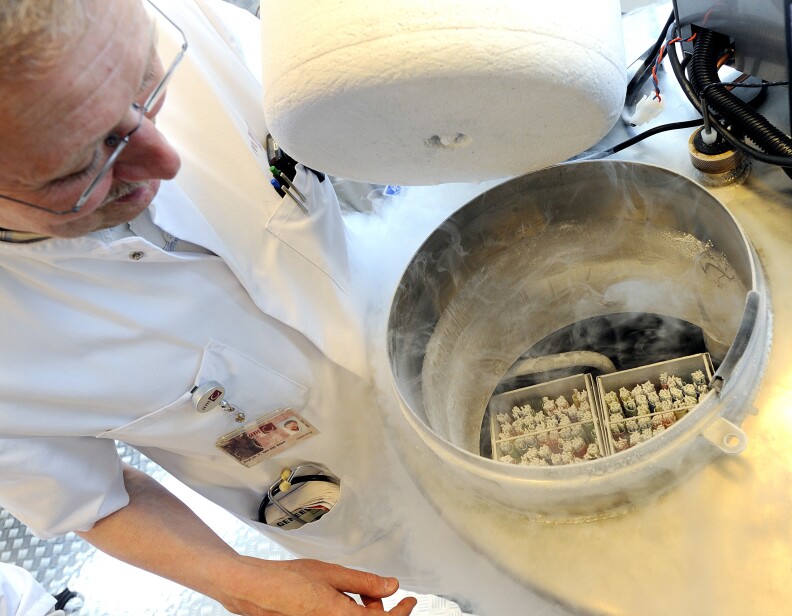Statistics show that women who get pregnant over the age of 35 face increased risk of complications, but these statistics are at odds with a growing number of American women who decide to wait to start their families. There are many reasons for women to choose putting off having a baby: Americans are living longer, women are making different career choices that mean they may be reluctant to be sidelined with a pregnancy while climbing the company ladder, or maybe they opted to wait longer to marry and start a traditional family. Whatever the case, technology has facilitated these important life choices.
The freezing of eggs is one controversial infertility practice that is becoming so commonplace that the American Society of Reproductive Medicine will announce Monday that the technique should no longer be considered “experimental.” The change in position was prompted by a report that reviewed 1,000 published studies about egg freezing and determined that developing technology has made the procedure safe and more effective. But not everyone is heralding this change. Some women’s health advocacy critics cite that the studies were based on pregnancies rather than healthy births and that more study is necessary.
So why the change? Is there enough information to warrant an increase of egg freezing? How can technology safely give more reproductive freedom to women?
Guest:
Dr. Richard J. Paulson, MD; Director of USC Fertility; Professor of Obstetrics and Gynecology and Chief of the Division of Reproductive Endocrinology and Infertility at the University of Southern California Keck School of Medicine
Guest:
Marcy Darnovsky, PhD, Associate Executive Director, Center for Genetics and Society based in Berkeley












